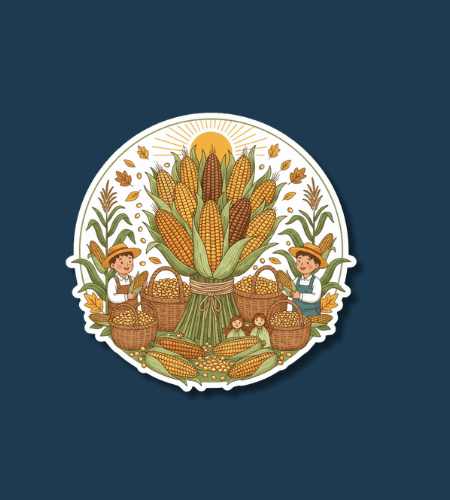The Maize Day, observed on the day after Thanksgiving each year, honors the grain known as maize (or corn) and its significant role in human history and agriculture.
Table of Contents
History of Maize Day
Maize Day has been observed since around 2004, timed to fall on the Friday following Thanksgiving in the United States. The holiday draws attention to maize’s remarkable history—from its domestication by Indigenous peoples in the Americas thousands of years ago to its widespread use around the world today.
Why is Maize Day important?
Maize Day highlights an often-underappreciated staple crop that has shaped cuisines, economies, and ecosystems across continents. By focusing on maize, we connect past and present agricultural practices, cultural heritage, and food security.
It also invites us to celebrate diversity of food and the many ways maize appears in meals—whether corn on the cob, tortillas, polenta or popcorn—thus broadening our understanding of our food systems and traditions.
- It recognizes maize as a foundational crop for many societies.
- It encourages appreciation for the variety of foods derived from maize.
- It supports awareness of agricultural history and crop diversity.
- It opens space to think about how we grow, eat and value our food.
- It can prompt learning on corn’s cultural, nutritional, and economic roles.
How to Celebrate Maize Day
Celebrating Maize Day means putting maize front-and-centre in your food, discussion, or learning. You might prepare a special dish featuring maize in an interesting way, explore recipes from cultures where maize is central, or take time to learn about maize’s journey from ancient fields to modern plates.
Beyond cooking, you could visit a farmers’ market or farm that grows maize, support local agriculture, or simply talk about why crops like maize matter. Make it fun, tasty and meaningful.
- Cook a maize-based dish: corn chowder, polenta, tamales or grilled corn.
- Explore recipes from different cultures that use maize in unique ways.
- Visit a maize (corn) field, farmers’ market or local producer if possible.
- Read or watch a documentary about the history of maize and its cultivation.
- Share your maize-meal or maize-moment on social media with #MaizeDay.
Subscribe to our newsletter and never miss a holiday again!

